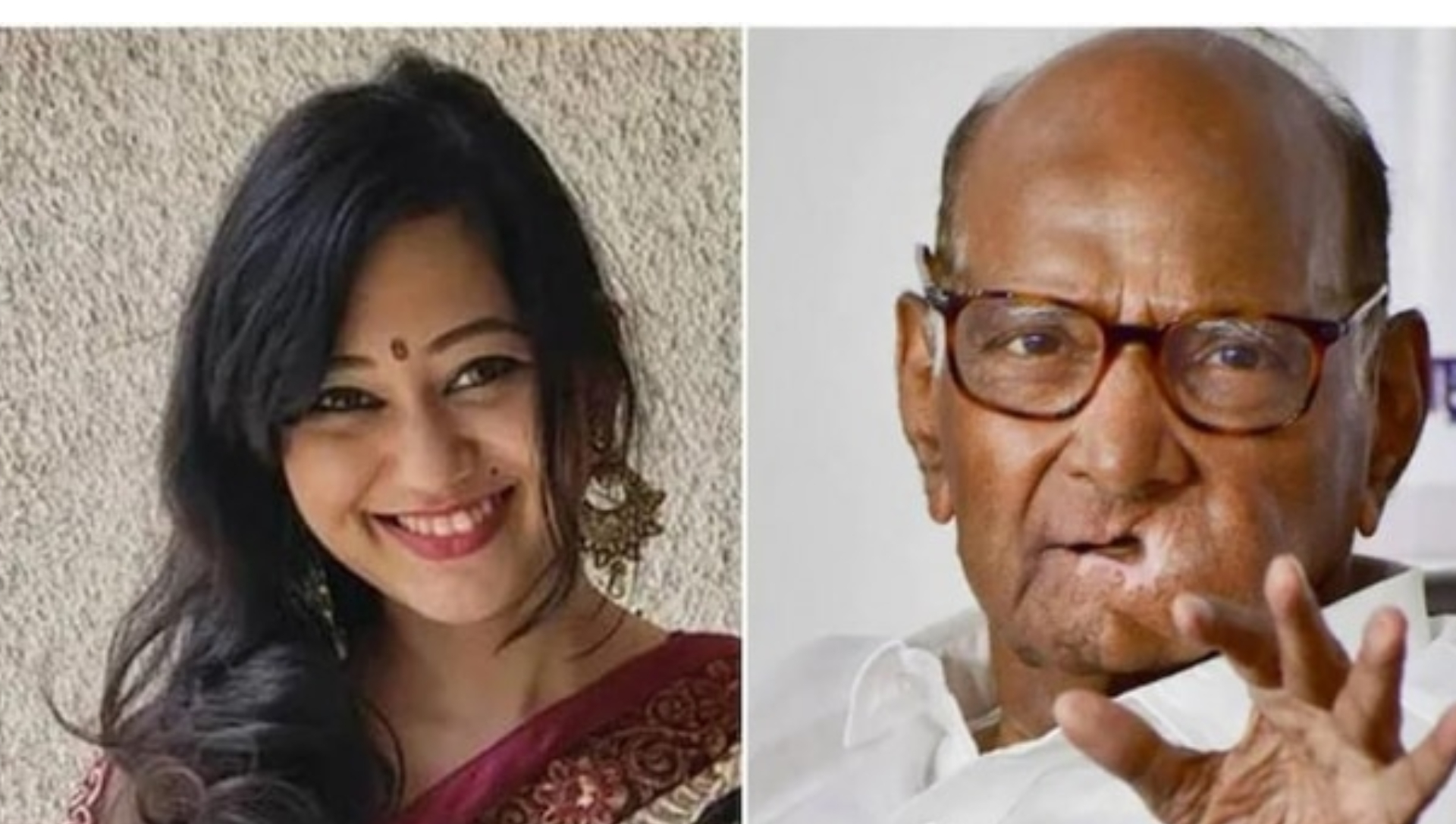With the advent of social media, it has become increasingly difficult for politicians to “manage” their image through their ‘chamchas’ in the mainstream media.
Ordinary netizens tear into politicians swiftly and savagely for any ‘slip of the tongue’ or perceived affront coming from the politicians. Senior Maharashtra politician and member of the Rajya Sabha, Sharad Pawar has been at the receiving end of such attacks recently for his comments which were perceived to be against Hindus in one case and against the Brahmin Community in another.
A small-time Marathi TV actress Ketaki Chitale recently posted a poem in the style of an “Abhang” (traditional Maharashtrian hym) on Facebook. Though the poem did not name Sharad Pawar, his followers in the Nationalist Congress Party (NCP) assumed it to refer to their leader in the most derogatory terms. Around the same time, another netizen from Maharashtra, a 22-year-old pharmacy student, Nikhil Bhamre, posted a different tweet on Twitter which, though it did not name Sharad Pawar, was perceived by his supporters to be a threat directed at him.
Evidently, these social media outbursts by ordinary citizens were not taken kindly by Sharad Pawar, who has been trying to refurbish his tattered image lately. He ordered his workers to use the state machinery and go after the critics. Maharashtra Cabinet Minister from the NCP, Jitendra Awhad vowed that hundreds of FIRs would be registered against Chitale and others.
Knowing that the cases against the critics were weak, the NCP workers filed multiple complaints in different districts of Maharashtra against them and the Maharashtra Police willingly obliged, registering multiple FIRs in respect of the same alleged offence.
The purpose of the multiple FIRs in various districts was obviously to stretch, frustrate and exhaust the critics and further intimidate and deter any other person from criticizing Sharad Pawar. The practical difficulties presented to the accused include being moved from Police Station to Police Station and from Jail to Jail. They have to arrange for legal representation at various locations and apply for and obtain bail. They also have to provide bail bonds and sureties etc. multiple times. This is obviously very stressful, physically and financially for the concerned accused/critic and his/her family and that is the whole purpose of filing multiple FIRs.
It is a fundamental legal principle that a person cannot be prosecuted and punished twice for the same offence and the principle is incorporated in Article 20 of the Constitution of India. It follows that there cannot be multiple FIRs and multiple prosecutions for the same offence (in this case the same social media post).
Without going into the merits of the individual case, let us see what the courts have said on the filing of multiple FIRs for the same offence.
In T.T. Antony vs State of Kerala and Ors. (2001), the Supreme Court held that filing more than one FIR for the same offence is illegal and quashed the subsequent FIR.
In Babubhai vs State of Gujarat (2010), the Supreme Court held that in such a case the court has to examine the facts and circumstances giving rise to both the FIRs and the test of sameness is to be applied to find out whether both the FIRs relate to the same incident in respect of the same occurrence or are in regard to the incidents which are two or more parts of the same transaction. If the answer is in the affirmative, the second FIR is liable to be quashed.
In Arnab Ranjan Goswami Vs the Union of India and Ors (2020), the Supreme Court held that such multiple FIRs arising out of the same incident is an abuse of the process and impermissible and thus all subsequent FIRs and complaints were directed to be quashed.
In Amish Devgan Vs Union of India (2020), the Supreme Court, interpreting Sections 179 and 186 of the Code of Criminal Procedure, transferred and clubbed all the subsequent FIRs with the first registered FIR.
It can thus be seen that the law does not permit the filing of multiple FIRs in respect of the same alleged offence and it is not as if the Police, particularly the senior Police officers of IPS rank, do not know the law. But in the effort to shamelessly pander to their political bosses, the IPS officers willingly act as sidekicks of unscrupulous politicians and allow the blatant violation of these fundamental legal principles.
It’s about time the Courts come down heavily on senior Police officials and curb this illegal practice of registering multiple FIRs for the same alleged offence.
(Anirudh Ganu is an Advocate practising in the Bombay High Court and other Courts in Mumbai. He regularly takes up public causes)
(Disclaimer: Views expressed above are the author’s own.)









